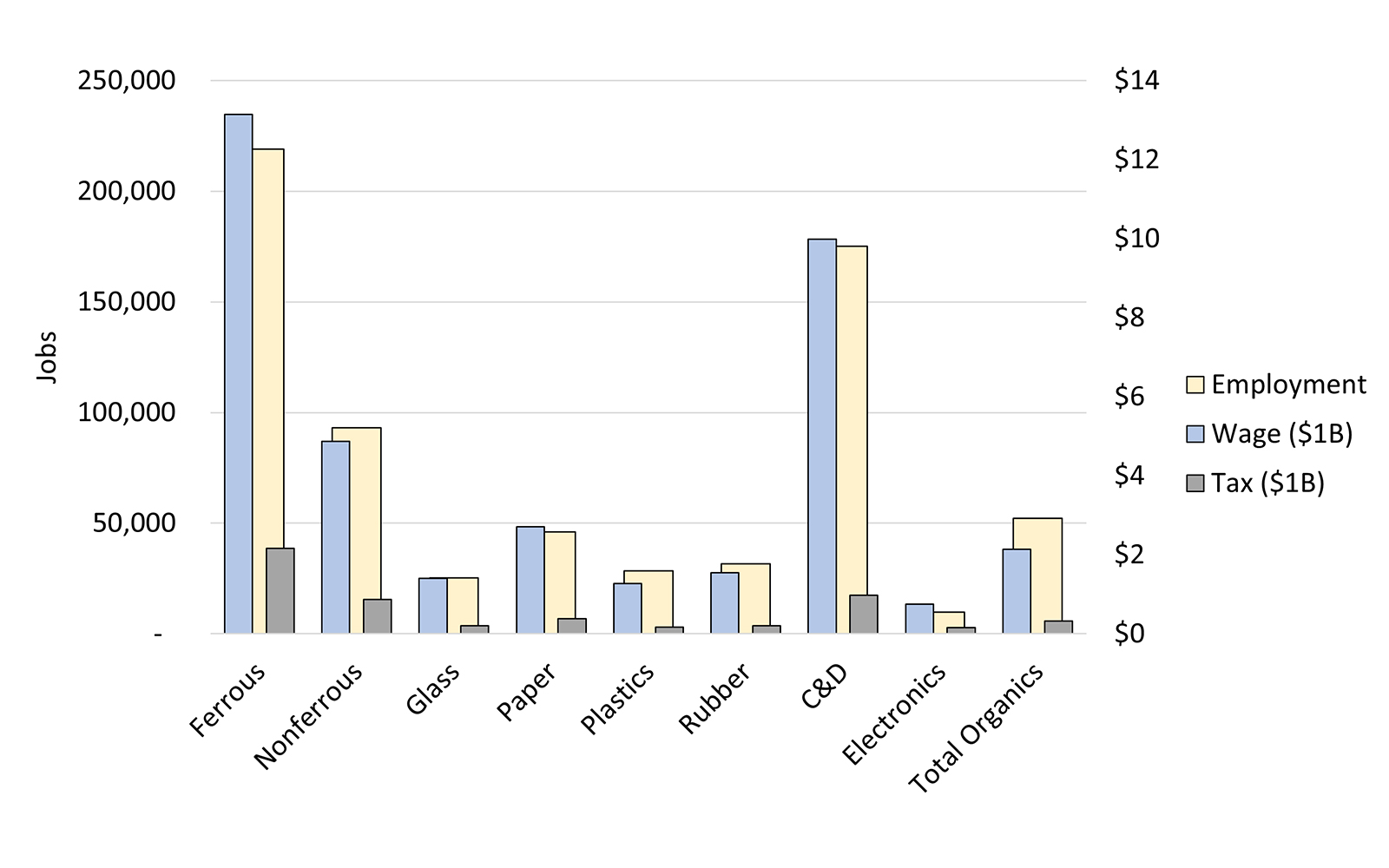Recycling Economic Information Report

Project Brief
The Challenge
Recycling leads to environmental benefits such as conservation of resources, but may also be an important contributor to the U.S. economy. The U.S. Environmental Protection Agency aims to provide tools to help quantify the economic implications of material recycling and reuse across the full economy.
ERG's Solution
ERG developed EPA’s 2020 Recycling Economic Information Study using a life-cycle-based waste input-output modeling approach. The study sought to assess the economic impacts of recycling on jobs and tax revenue in the United States for nine material categories. It estimated wages, employment, and tax revenue generated to support recycling activities as an aggregate and for each material. As part of the study, ERG updated the WIO model, then compared results between the updated model and a previous version to understand how the impact of recycling in the United States has changed over time.
In updating the model, we focused on transparency, user-friendliness, and accuracy. We used publicly available sources to update the underlying economic and recycling data (including recycling process data) on the quantities of recycled materials generated and consumed in the U.S. economy; we linked these data to the most recent available detailed economic input-output accounts from the Bureau of Economic Analysis. We also added a results dashboard and maintained links to available source data throughout the model. EPA published the 2020 study results and key findings on its REI website.
Client
U.S. Environmental Protection Agency